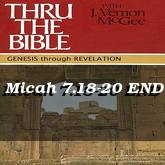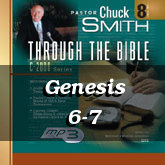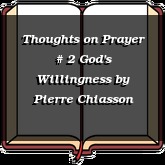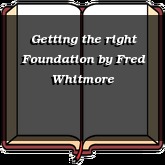"Keep back thy servant also from presumptuous sins."
—Psalms 19:13
Such was the prayer of the "man after God's own heart." Did holy David need to pray thus? How needful, then, must such a prayer be for us babes in grace! It is as if he said, "Keep me back, or I shall rush headlong over the precipice of sin." Our evil nature, like an ill-tempered horse, is apt to run away. May the grace of God put the bridle upon it, and hold it in, that it rush not into mischief. What might not the best of us do if it were not for the checks which the Lord sets upon us both in providence and in grace! The psalmist's prayer is directed against the worst form of sin-that which is done with deliberation and wilfulness. Even the holiest need to be "kept back" from the vilest transgressions. It is a solemn thing to find the apostle Paul warning saints against the most loathsome sins. "Mortify therefore your members which are upon the earth; fornication, uncleanness, inordinate affection, evil concupiscence, and covetousness, which is idolatry." What! do saints want warning against such sins as these? Yes, they do. The whitest robes, unless their purity be preserved by divine grace, will be defiled by the blackest spots. Experienced Christian, boast not in your experience; you will trip yet if you look away from him who is able to keep you from falling. Ye whose love is fervent, whose faith is constant, whose hopes are bright, say not, "We shall never sin," but rather cry, "Lead us not into temptation." There is enough tinder in the heart of the best of men to light a fire that shall burn to the lowest hell, unless God shall quench the sparks as they fall. Who would have dreamed that righteous Lot could be found drunken, and committing uncleanness? Hazael said, "Is thy servant a dog, that he should do this thing?" and we are very apt to use the same self-righteous question. May infinite wisdom cure us of the madness of self-confidence.
Ⓒ 1996-2021 Heartlight, Inc. This material may not be reproduced in part or whole for commercial use without written consent. Written by Charles H. Spurgeon.

Continue reading...
—Psalms 19:13
Evening Thought
Such was the prayer of the "man after God's own heart." Did holy David need to pray thus? How needful, then, must such a prayer be for us babes in grace! It is as if he said, "Keep me back, or I shall rush headlong over the precipice of sin." Our evil nature, like an ill-tempered horse, is apt to run away. May the grace of God put the bridle upon it, and hold it in, that it rush not into mischief. What might not the best of us do if it were not for the checks which the Lord sets upon us both in providence and in grace! The psalmist's prayer is directed against the worst form of sin-that which is done with deliberation and wilfulness. Even the holiest need to be "kept back" from the vilest transgressions. It is a solemn thing to find the apostle Paul warning saints against the most loathsome sins. "Mortify therefore your members which are upon the earth; fornication, uncleanness, inordinate affection, evil concupiscence, and covetousness, which is idolatry." What! do saints want warning against such sins as these? Yes, they do. The whitest robes, unless their purity be preserved by divine grace, will be defiled by the blackest spots. Experienced Christian, boast not in your experience; you will trip yet if you look away from him who is able to keep you from falling. Ye whose love is fervent, whose faith is constant, whose hopes are bright, say not, "We shall never sin," but rather cry, "Lead us not into temptation." There is enough tinder in the heart of the best of men to light a fire that shall burn to the lowest hell, unless God shall quench the sparks as they fall. Who would have dreamed that righteous Lot could be found drunken, and committing uncleanness? Hazael said, "Is thy servant a dog, that he should do this thing?" and we are very apt to use the same self-righteous question. May infinite wisdom cure us of the madness of self-confidence.
Ⓒ 1996-2021 Heartlight, Inc. This material may not be reproduced in part or whole for commercial use without written consent. Written by Charles H. Spurgeon.
Continue reading...


 Let's agree with Blood on the Cross, trusting God's power to secure jobs. "For I know the plans I have for you, declares the LORD" (Jer 29:11). Claim His promises, trust His provision. "The LORD will fight for you" (Ex 14:14). In Jesus' name!
Let's agree with Blood on the Cross, trusting God's power to secure jobs. "For I know the plans I have for you, declares the LORD" (Jer 29:11). Claim His promises, trust His provision. "The LORD will fight for you" (Ex 14:14). In Jesus' name! 
 Let's lift up
Let's lift up 
 **Prayer Group Updates!**
**Prayer Group Updates!**  Let's lift up
Let's lift up  Pray for Francine's comfort and marriage restoration.
Pray for Francine's comfort and marriage restoration. Support
Support  Intercede for
Intercede for  Pray for
Pray for  Ask for miracle marriages and family celebrations with
Ask for miracle marriages and family celebrations with  Seek divine turnaround for
Seek divine turnaround for  Pray for
Pray for  Pray for healing from osteoarthritis pain and inflammation.
Pray for healing from osteoarthritis pain and inflammation. Ask for protection, justice, and better health for family and friends.
Ask for protection, justice, and better health for family and friends. Pray for peaceful sleep and restoration.
Pray for peaceful sleep and restoration.




